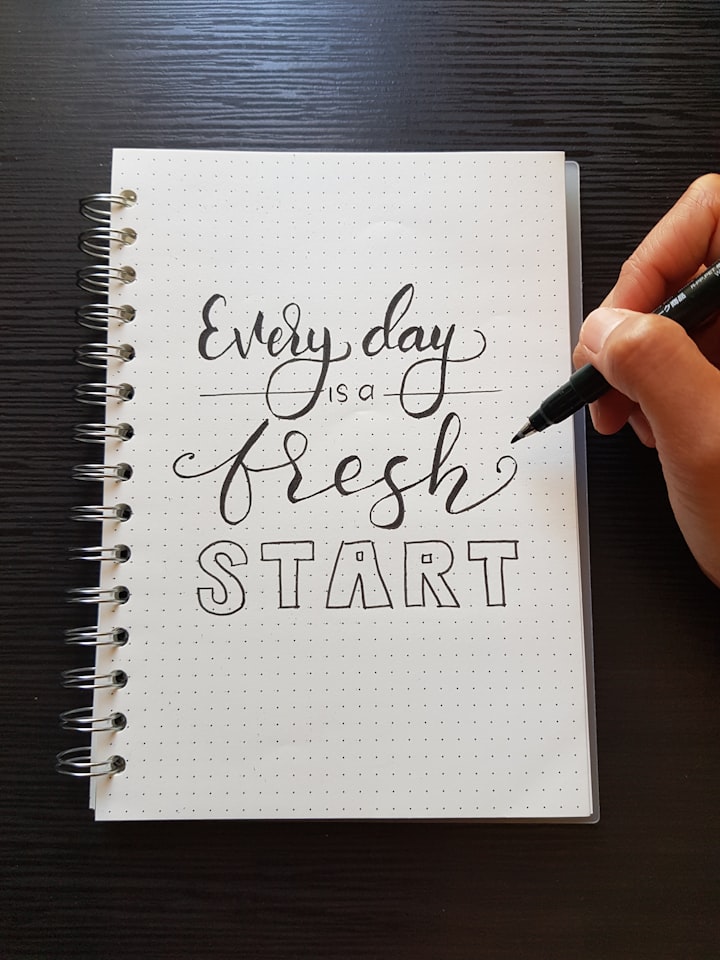Mortgage Tips for First-Time Homebuyers to Know
Want to get a house, but don't want to be eaten out of house and home by lenders? These mortgage tips for first-time homebuyers will help you get a great deal.

If you're like me, you have heard some serious horror stories from homebuyers who lost their homes during the Great Recession. Getting a mortgage is a risky endeavor which basically locks you into an agreement to pay on a home for the next decade or so—and if you're not wise, it can quickly be the cause of you filing for bankruptcy.
Choosing to take out a mortgage can be a wise choice, too. It can be cheaper than rent in some cases, so, it's not all bad. That being said, much of the difference rests on being a savvy homebuyer and knowing the wisest way to get a mortgage.
I can't stress how much knowledge can be the difference between having a roof over your head and dealing with homelessness in America. For those who are out of the loop, these mortgage tips for first-time homebuyers are a great place to start.
Regardless of how much house you want to buy, much of being able to afford a mortgage boils down to math and priorities.
It doesn't matter whether you're buying a $100,000 home or a million-dollar home. You will still need to have a decent income for the home size, and you're also going to have to prioritize your saving until you get enough for a down payment.
The amount of home you can afford will be, typically, around three times what you make in a year. So, if you make $50,000 per year, you can afford a $150,000 home. Obviously, if you're richer and make $200,000 per year, you can afford way more—but for the average person, this rule of thumb rings true.
Ideally, your mortgage payment will be no more than 20 to 25 percent of your income. So, keep that number in mind when you're doing the math for a mortgage.
It's also important to be honest about how dedicated you are to saving money. Being realistic about your spending is key. So, no, you can't mortgage your favorite Disney property, so stop fantasizing.
Your credit score can be a dealbreaker—as can your credit card debt.
Though you probably heard these mortgage tips for first-time homebuyers before, I'm going to reiterate them. You might want to cut up your credit cards and pay down debt before you apply for a mortgage.
Many people do not end up getting approved because of the credit card debt they hold, or because they have a 500 credit score. Fix these before you hit up a bank.
First things first, get any idea of a 30 percent down payment out of your head.

It used to be that a minimum down payment on a house was 30 percent of the asking price—and that's just not really affordable for would-be homebuyers in most cases.
That's why one of the best mortgage tips for first time homebuyers is to research your options, especially when it comes to down payment. These days, there are many government-subsidized mortgage programs that allow you to buy your own house without that huge down payment.
These include:
- FHA Home Loans. These require around a 3.5 percent down payment, and are government sponsored. You can actually get the down payment covered as long as it's in the form of a "gift" from an allowed source.
- FHA 203K Loans. Yes, these are legit loans that also factor in the cost of fixing up a home, and yes, they are low down payment loans.
- USDA Home Loans. These can finance 100 percent of your homebuying costs, including the closing costs. No money down is needed in many cases.
- VA Home Loans. There are so many epic benefits to joining the military, and this is one of them. VA home loans require no money down, which is enough to make anyone happily yell "HOO-AH!"
If down payments were what has been keeping you from buying a house, don't be discouraged anymore. Research your options, and you may be surprised to find out you can still afford a home.
Each state also has special programs that make homebuying a little less painful—with some being far more beneficial than others. Moreover, private lenders are also getting more lax about the down payment issue.
Learn about points and interest rates before you sign on the dotted line.
One of the more commonly discussed mortgage tips for first-time homebuyers tells them to buy lots of points. But, you're probably wondering what points are to begin with.
Points, also known as discount points, are fees that you pay in order to lower the interest rate. The idea of paying fees to a lender upfront may make you bristle, but hear us out. It can save you a huge amount of money in the long term.
Typically, points will drop interest rate by around 0.25 percent per point. This may not seem like much, but if you pay $1000 on your mortgage every month, a single point can save you $30 per month...or around $360 per year. Multiply that by 30, and you'll see why it's worth buying a point or two when you're ready to sign the dotted line.
That being said, you might also want to figure out when your "break even" rate is with points. Sometimes, if a mortgage is really small or you intend on paying it off quickly, it just doesn't make sense to buy points.
To find out what your "break even point" is, divide the cost of the points by the amount you'd save on your mortgage.
Get a home inspection and an appraisal before you get the mortgage.

Both may save you from making costly mistakes when you're buying a new place. The inspection can alert you to major issues you didn't notice, but could end up causing you tons of costs in repairs.
The appraisal can actually help you get more money in your mortgage—which can help you cover other costs, depending on the kind of loan you have. This means better finance options for you.
If they do find something that's not acceptable during home inspections, in most cases, that will allow you to rescind your offer and get your money back. This is a huge deal, when you think about what it can mean for your homebuying process.
Also, you'll need to do a title search to ensure you're not buying a home someone else also has a title to. Skipping this can and will mess up the transaction.
Though this seems obvious, you should be aware: not all home types will allow you to get mortgages.
In certain cases, you might be wasting your time reading mortgage tips for first-time homebuyers. Not all home styles will allow you to use a mortgage to pay off the remainder. Trailer park homes probably will not qualify a mortgage.
Condos and co-ops are getting increasingly popular, but that doesn't mean that you'll be able to get one. Getting a mortgage for a condo or a co-op can prove very difficult in some cases, especially if you are trying to get into a bigger one.
It's also worth noting that co-ops tend to have maintenance fees akin to rent, so you really should figure out what you want to do as far as buying a home before you try to take out a loan.
If you're going for a down payment beneath 20 percent, you may need to take out some PMI—and you need to prepare for that.

PMI is called Private Mortgage Insurance, and as the name suggests, it's bought when banks want to be reassured that they will get the money paid off. The price of PMI can be a pretty big bill to consider, and in some cases, it can actually negate the amount of points you buy.
If you do choose to do a low down payment, you should consider running the numbers on mortgage insurance before you agree to anything. You might find that PMI actually will price you out of a home.
Piggyback mortgages are a thing.
Here's one of the better mortgage tips for first-time homebuyers you may not see coming: piggyback loans. If you aren't sure you can afford PMI, this may be a better option to look into.
Basically, this is a second mortgage taken out at the time of the first one. This second loan is used to increase the amount of down payment for the first loan, which thereby gets rid of the need for PMI.
Getting a piggyback loan can save you a lot of money, so you may want to consider getting one if you're low on savings. Some mortgage lenders might even be willing to help.
A lot of the mortgage interest you pay can be tax-deductible, but not all of it.
This much is true, and as a matter of fact, so are about SALT tax write-offs. It all depends on the current tax laws. Right now, the GOP tax law that was recently passed actually removed a lot of the financial benefits that coming with a home.
So, while many mortgage tips for first-time homebuyers will tell you that you can relax and write them off, it may not be the wisest choice to make. With the way things are politically, it's a good idea to avoid taking out mortgage loans that you can't afford without a tax break.
Just like with anything else, shop around.

You should never just "stick to one lender" simply because the realtor told you to do that. Going online, you might be able to find a better lender across the country. Mortgage rates can vary hugely from lender to lender, so it's crucial to shop around and find what each will offer you.
Of all the mortgage tips for first-time homebuyers you need to know, it's this one. The right lender can make a world of difference in how easy it is to pay for your home.
The best way to find a good lender is to go online and see a larger homeloan marketplace. This allows you to plug in your stats and compare offers right off the bat—and that, in turn, can help you gauge what's normal and what isn't normal among lenders.
Learn about ARMs before you consider using them.
ARMs, also known as Adjustable Rate Mortgages, may sound like a good idea, particularly when you see the low rates they start out with. However, the thing about these mortgages is that their interest rates adjust annually, with the first five years being stabilized with a fixed rate.
These sound great, but there's a risk. If the mortgage market is poor, you could end up having your mortgage interest rate skyrocket. So, it's up to you to take that risk.
Before you sign the dotted line, you need to know your rights as a mortgagee.
Many of the best mortgage tips for first-time homebuyers come in the form of legal rights. According to US federal laws, all mortgagees have the following rights:
- You have the right to shop around for the best loan for you. Anyone who tells you otherwise is breaking the law.
- You have the right to be fully aware of all the costs in the loan. This right includes the points, fees, and interest rates.
- You have the right to ask for a "Good Faith" estimate about the total cost of the loan prior to signing. You should never have to sign the loan and pay the fees in order to get the full estimate.
- You have the right to know which fees aren't refundable in the event of a loan falling through. This is true even before you sign anything.
- You also have the right to ask what your mortgage broker does, and how much they're getting paid to do it. You may find out that the broker is really heavily cashing in—and that may change your decision to use them.
- Lastly, you have the right to have the mortgage process explained to you—along with any terms you don't understand. This mini bill of rights is all about keeping you educated. If you don't know something, ask.
About the Creator
Ossiana Tepfenhart
Ossiana Tepfenhart is a writer based out of New Jersey. This is her work account. She loves gifts and tips, so if you like something, tip her!







Comments
There are no comments for this story
Be the first to respond and start the conversation.